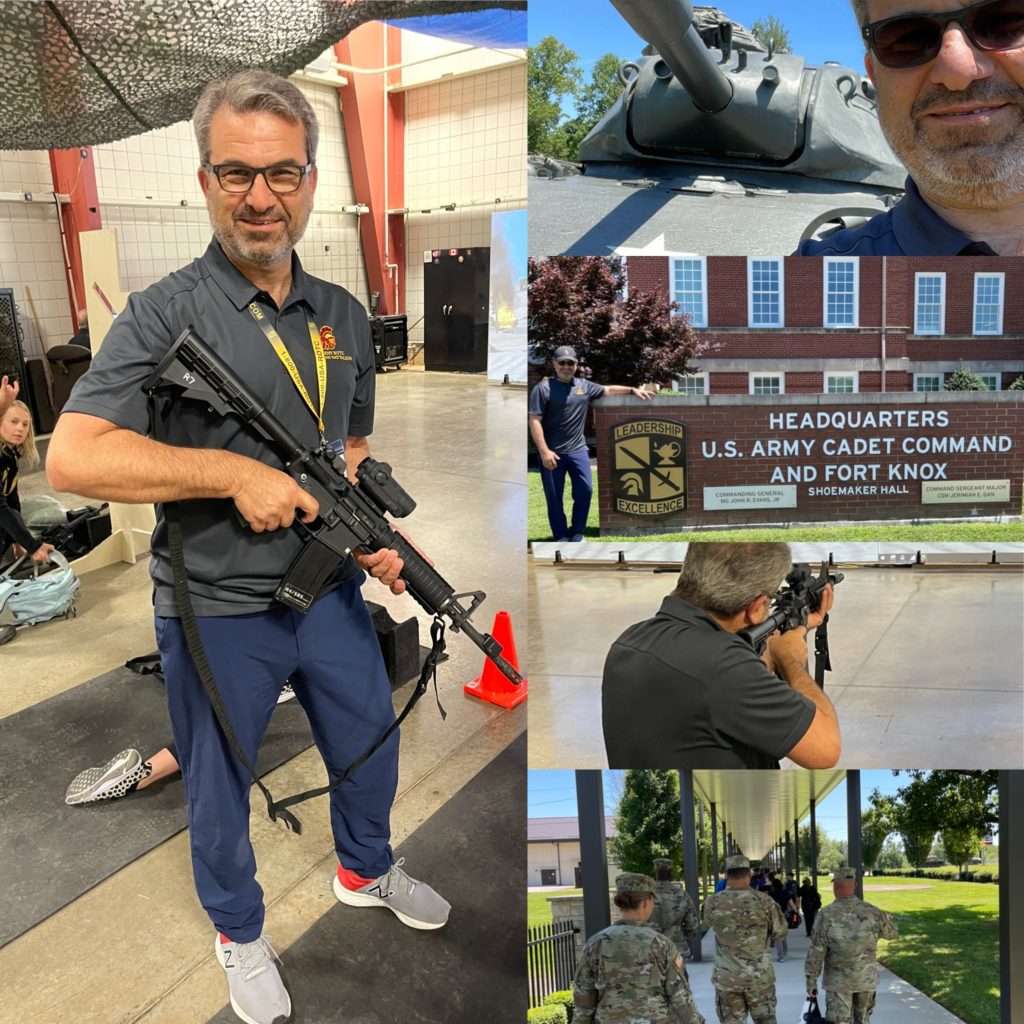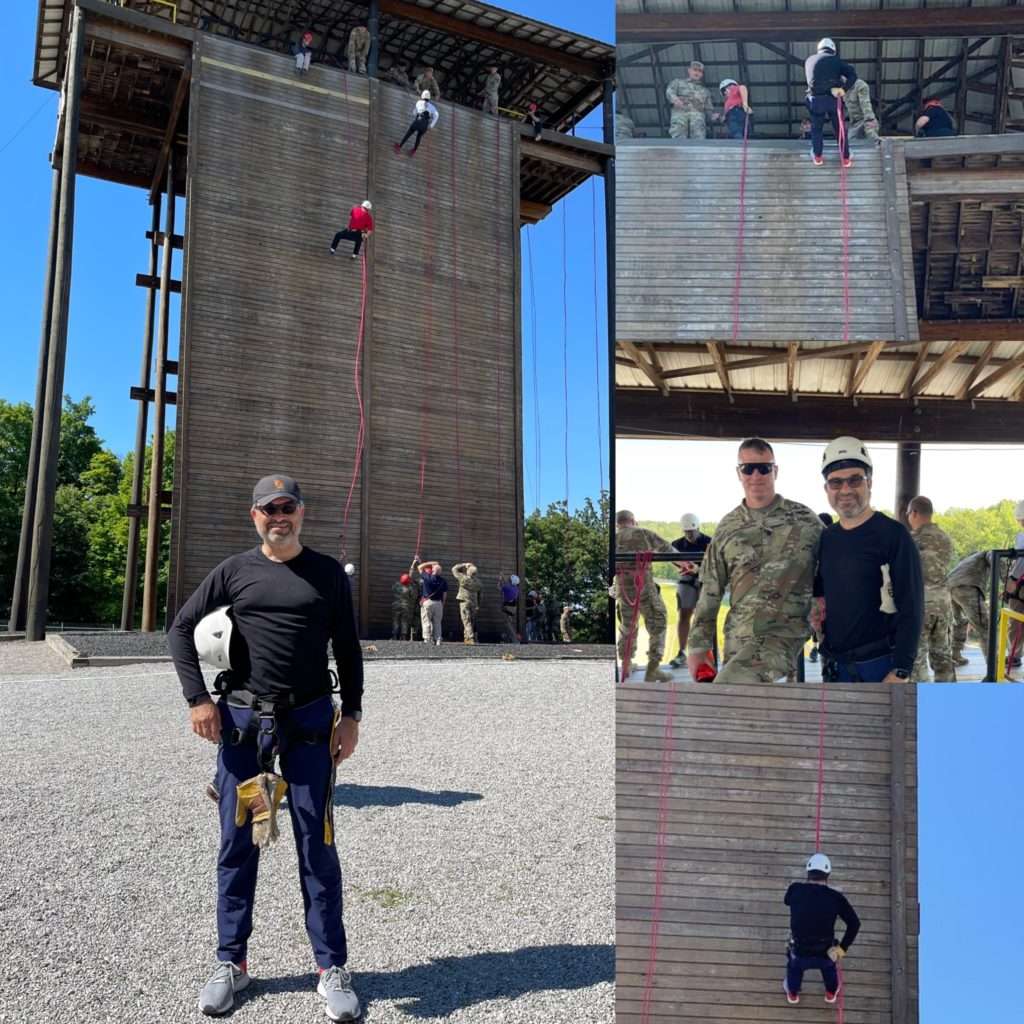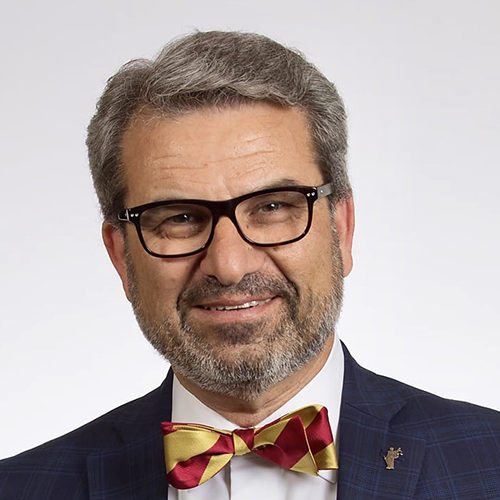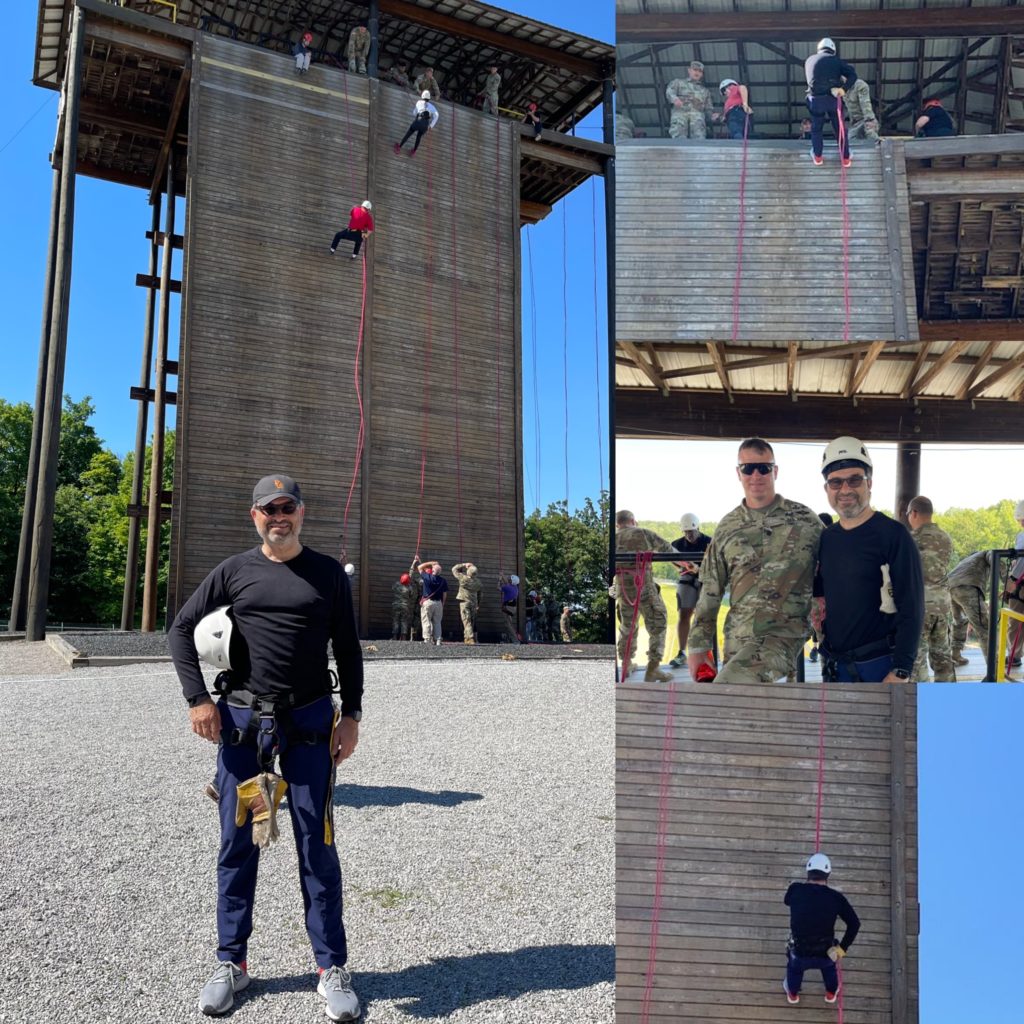I tell my students to remain hungry for knowledge by committing to be a student for life. I always am. But I am also a teacher by family tradition for life. I will never let a good leadership lesson go to waste. As a pracademic, I teach or share what I learn and what I know. While most of what I know over the last three-plus decades relates to public policy, management and law, what I learned last week at the U.S. Army Cadet Command at Ft. Knox is quite insightful and the purpose of this blog.
Background
The U.S. Army, Navy, and Air Force partner with universities to recruit, educate, train, and commission leaders of character in their respective Reserve Officer Training Corps (ROTC) programs. We at USC continue to enjoy a long and productive relationship with the United States military for over a century. The legacy of success among our Trojan Batallion scholar graduates is unparalleled. I am proud to claim that we have more than 200 notable USC ROTC alumni making the ranks of flag (general) officers in the U.S. military. The ROTC programs at USC became part of the USC Sol Price School of Public Policy in 1984. I am honored to direct these programs (AROTC, AFROTC, and NROTC) as the faculty member in charge of 300 outstanding scholar cadets. Along with my USC colleagues, we remain committed to maintaining the most elite ROTC program here at USC.
My trip to Ft. Knox
Remaining faithful to our tradition and our commitment to our U.S. Army ROTC program, I accepted an invitation of Major General John R. Evans, Jr. and his staff to attend the U.S. Army Cadet Command at Ft. Knox, Kentucky. In 2014, the U.S. Army consolidated all collective Army ROTC summer training at Ft. Knox. Approximately 40 colleagues from various universities around the nation joined the program to experience what our cadets experience and provide input for the common good. The program was invaluable to understanding the needs for resources better and best serving my scholar cadets.

What I learned
Simply put, a sound organizational structure or system based on proper knowledge and resources is enough to overcome fear instead of avoiding fear. Self-confidence and mental discipline are the goals of the 64-foot rappel tower at Ft. Knox. This conclusion may be an oversimplification but a great lesson in developing leadership skills.
I had never rappelled in my life. Rappelling is the art of lowering yourself down a rope in a controlled manner. Yet after a one-hour briefing and demonstrations with professional instructors of the U.S. Army, I acquired enough knowledge to understand the science behind the system of frictions. I understood the functions of the rappel masters and belayers to be crazy enough to step off the equivalent of a six-story building backward dangling by a rope.
Given the height and the inexperience, I thought I would hesitate. I did not. My fear was overcome by me immediately following what I learned in the structure or the system. I yelled right hand (my dominant hand) to allow my rappel master to hook my rope correctly. I then looked straight down 64 feet, informing my belayer (the person who acts as the safety valve in case of a fall) that I was ready to rappel. Then went through my safety sequence 1 (rope), 2 (hook), 3 (feet), and 4 (my destination; the ground).

I began my descent, repeating the safety sequence on the orders of my rappel master. Frankly, there is no time to fear as you follow instructions, and there is no room to avoid fear but only the opportunity to overcome it. Voila, I was down on the ground in no time, reaching the goal I set out 64 feet ago.
Rewards of Rappelling
While this training of the U.S. Army teaches infantry skills to young cadets, the life lessons I drew during this exercise are genuinely remarkable.
Knowledge: The phrase “Scientia potentia est” is a Latin aphorism meaning “knowledge is power.”
Knowledge is a state of awareness and understanding. But knowledge without action may be meaningless. Knowledge gives us the power to mobilize our efforts in the right direction. Knowledge helps us drive a bus, ride a bike or play an instrument. In this case, knowledge allowed me to jump off the roof of a building. Something I had never experienced in my life. Therefore, knowledge coupled with action is compelling.
Organizational Structure/System: An excellent organizational structure or system facilities the attainment of goals through the proper coordination of acquired knowledge. A sound system has checks and balances for the successful accomplishment of goals or the adjustments necessary. The U.S. Army has rappelling to a perfect system where a complete novice like me can step off a six-story building with the intent to reach ground overcoming and not avoiding fear. Indeed, I say overcoming because the U.S. Army knows that avoidance is not a permanent solution.
Fight on!

Frank V. Zerunyan is a Professor of the Practice of Governance at the University of Southern California (USC) Sol Price School of Public Policy (USC Price) and Director of Executive Education at USC Price Bedrosian Center on Governance. Professor Zerunyan oversees USC’s Reserve Officers’ Training Corps (ROTC) as the Director and University Liaison for the U.S. Air Force, Army, Naval Reserves ROTC, and Nautical Science Programs.
Professor Zerunyan’s principal areas of expertise include governance, public-private partnerships, civic and ethical leadership, land use, medical regulation, negotiation, and executive education. He lectures locally and globally to build capacity and foster leadership among public executives worldwide. He is the author of books, book chapters, and many short articles published nationally, internationally, and on USC Price’s “Faculty Perspectives.” Professor Zerunyan is often quoted in the media and is a USC resource for journalists as an expert in governance and leadership. He is also an expert on public administration at the United Nations Innovation Branch (formerly Capacity Building Branch).
For his influential advisory role in the Republic of Armenia, he was awarded LL.D. Doctor of Laws – Honoris Causa by the Public Administration Academy of the Republic of Armenia. Professor Zerunyan designs curricula and teaches at the American University in Armenia, Yerevan State University, and the Vazgen Sargsyan Military University in Armenia, with an honorary rank of colonel. He also teaches for the U.S. Navy at the U.S. Naval Service Training Command.
Professor Zerunyan serves on the editorial boards of the Public Administration Scientific Journal for the Republic of Armenia and the Ukrainian Law Review. He is on the board of councilors of Anahuac University Law School, Xalapa, Mexico (Consejo Consultivo de la Escuela de Derecho).
Professor Zerunyan earned his Doctor of Jurisprudence (Doctor of Laws) degree from Western State University College of Law and his Bachelor of Arts degree from California State University Long Beach. He also completed his advanced legal education in Corporate Taxation at the University of Southern California Law Center (USC Gould). He is a graduate of the California League of Cities’ Civic Leadership Institute.
Professor Zerunyan, trained and practiced as a lawyer, is a four-term Mayor and Councilmember in the City of Rolling Hills Estates, California. He serves on several city, county, and regional policy boards and committees. He was also a gubernatorial appointee under Governor Schwarzenegger, serving 38 million medical consumers on the Medical Board of California.

